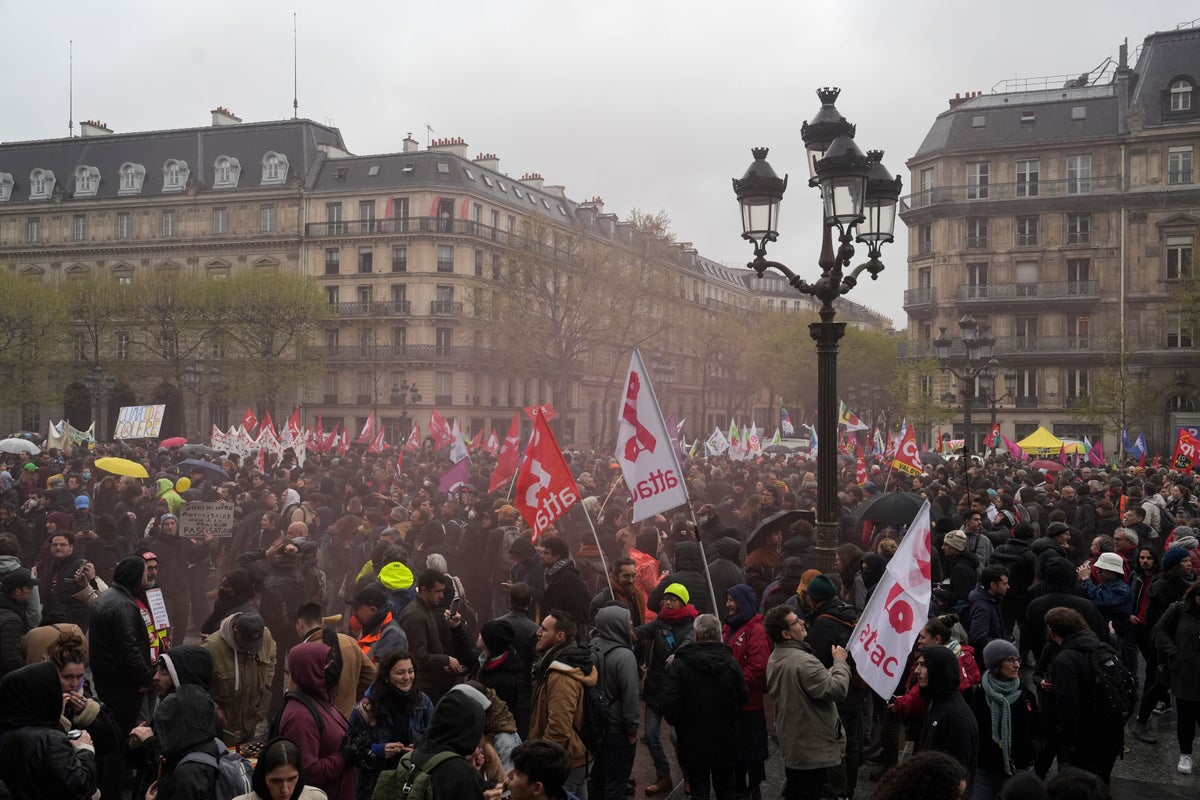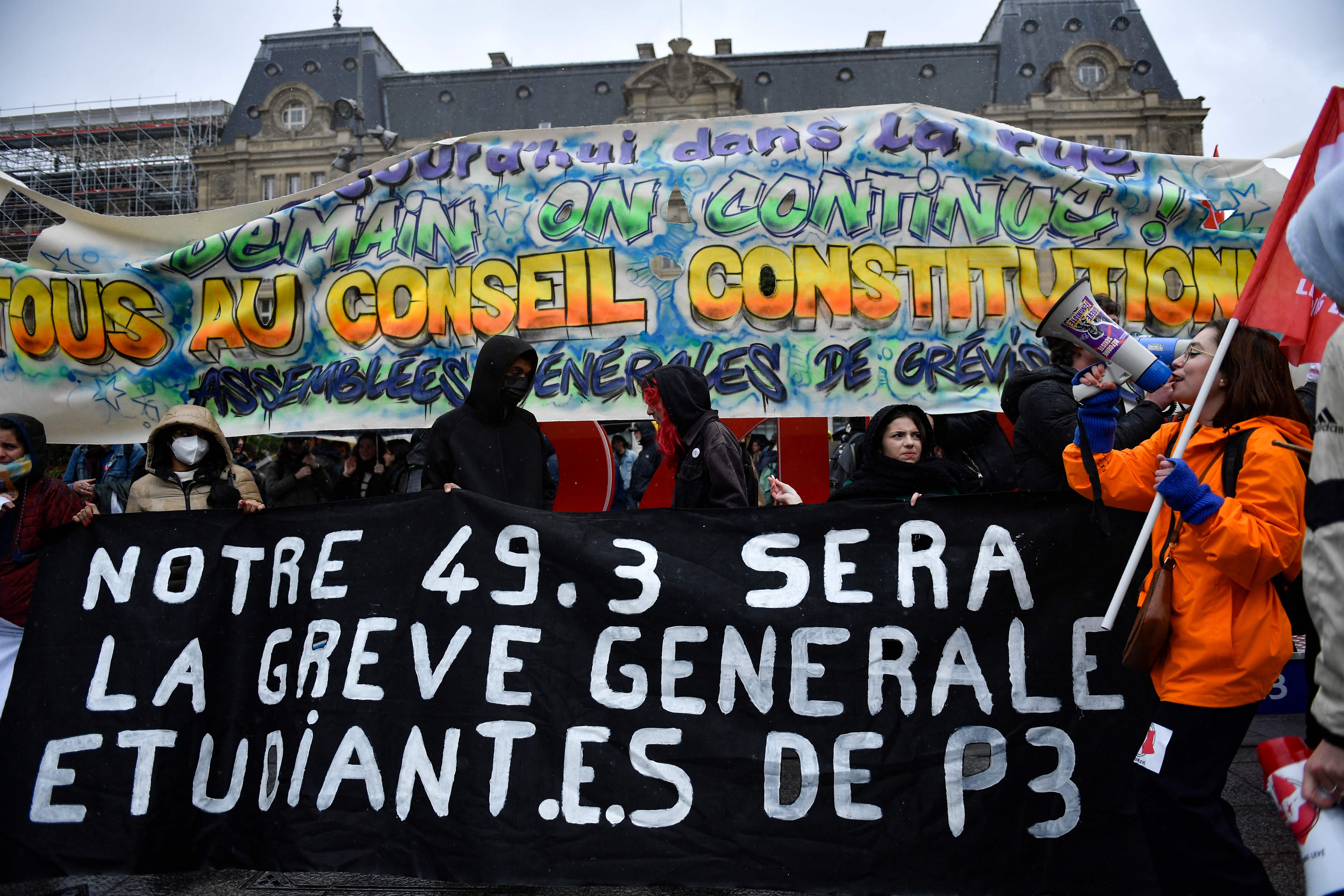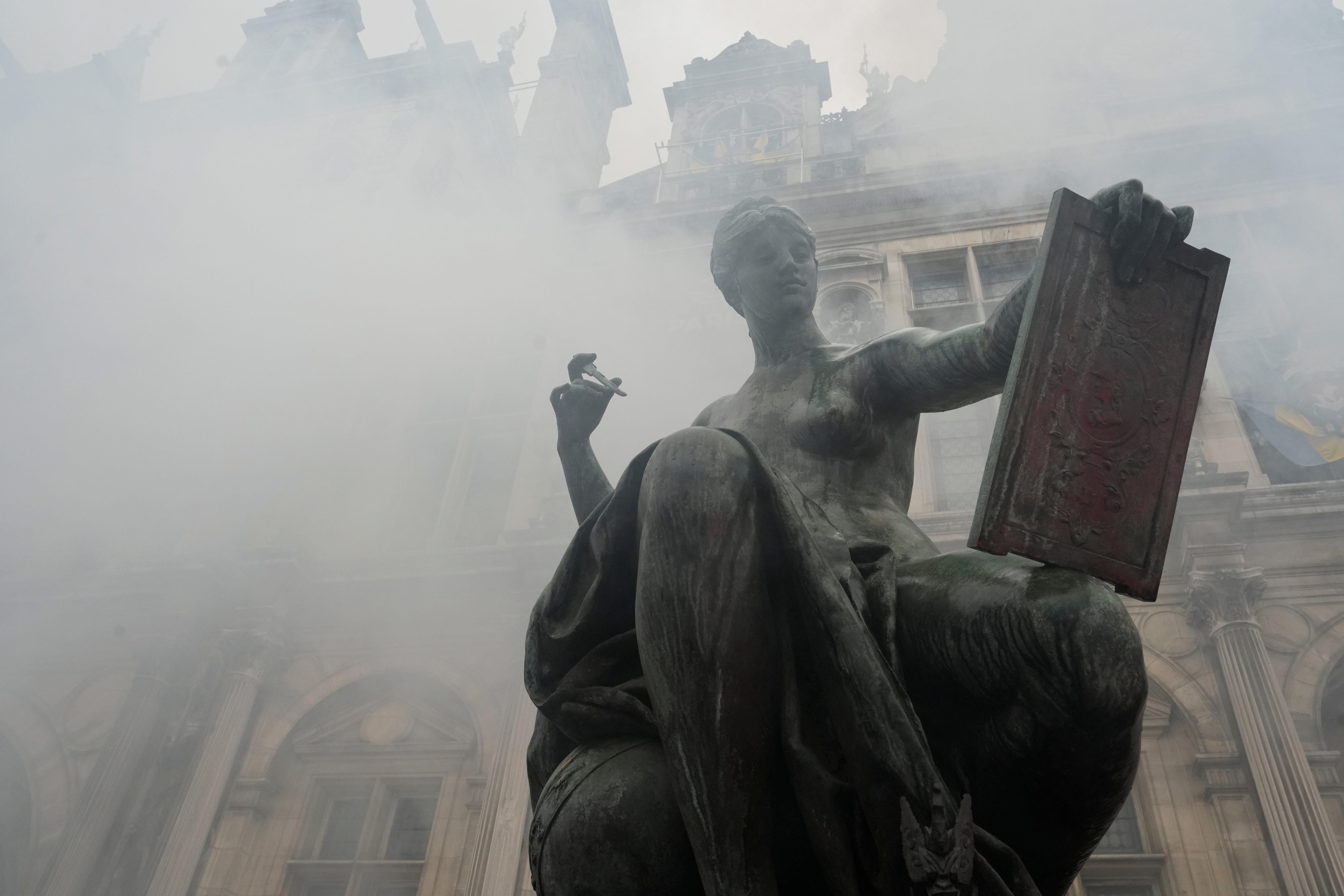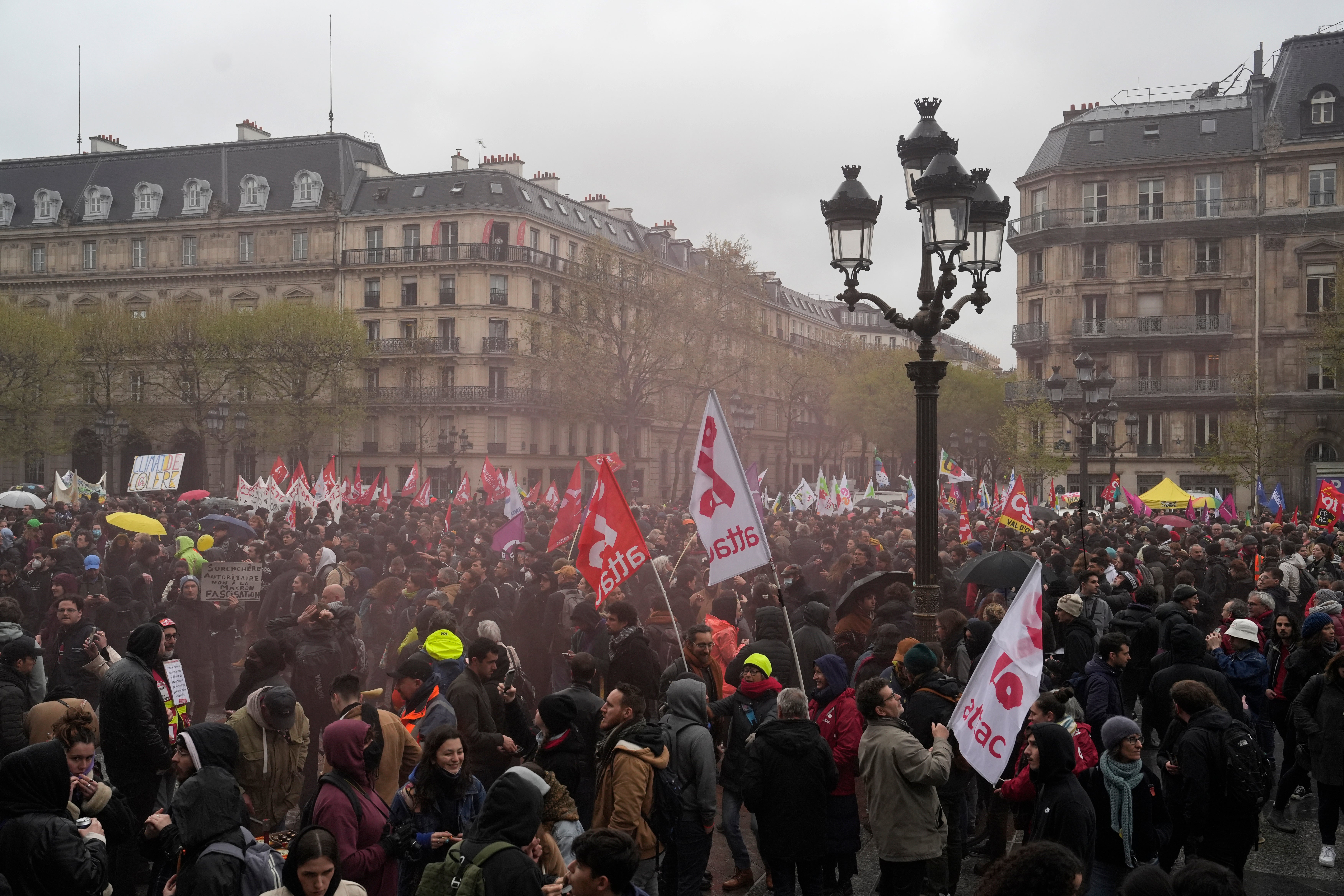
France is braced for more violent protests after Emmanuel Macron’s controversial plans to raise the retirement age to 64 were cleared by the country’s top constitutional body.
The president’s pension reforms have triggered nationwide strikes and demonstrations but the Constitutional Council on Friday said they could go ahead with only minor changes.
It is a victory for Mr Macron, but the move is likely to further enrage unions and other opponents of the plan, with protesters already gathered around France on Friday evening as news of the approval emerged. Armed police have been on standby behind a metal fence erected outside the Constitutional Council building in central Paris.

Labour minister Olivier Dussopt said the law would enter into force on 1 September as initially planned, brushing off requests by unions not to promulgate it in the face of huge public opposition.
Opinion polls show a vast majority oppose the reform, as well as the fact that the government invoked Article 49.3 of the constitution allowing it to pass the bill without a final vote in parliament that it might have lost.
The council said the government’s actions were in line with the constitution and approved raising the legal retirement age, with only peripheral measures meant to boost employment for older workers struck down on the grounds that they did not belong in this legislation.
Mr Macron says the French must work longer or the pension budget will fall billions of euros into the red each year by the end of the decade.

Hardline unions and the opposition warned before the ruling that they would not back down even if the council approved.
“The fight continues,” hard-left leader Jean-Luc Melenchon said following the ruling.
Protesters gathered outside Paris City Hall, holding banners reading “climate of anger” and “no end to the strikes until the reform is pulled”.

“We just hope we’ll see a response like the one that followed the 49.3, that the deep anger of the people, workers and students, resurfaces, and that people get back out on the streets,” said train diver Farid Boukhenfer at the Paris rally.
The Constitutional Council also rejected a proposal by the opposition to organise a citizens’ referendum on the pension reform.
The opposition has tabled another bid for a referendum, which should be reviewed by the council in early May.

The pensions system is a cornerstone of France‘s cherished social protection model, and trade unions say the money can be found elsewhere, including by taxing the rich more heavily.
Mr Macron made overhauling the system a flagship reform of his second term in office.

The president’s opponents took the reform to the Constitutional Council on the grounds that it was tacked onto a social security budget bill, which curtailed parliamentary debate, and was then forced through without a final vote in parliament.
The government’s decision to get around a parliamentary vote in March by using special constitutional powers heightened the fury of the measure’s opponents, as well as their determination.
On Thursday, hundreds of demonstrators gathered outside the offices of LVMH, the owner of luxury fashion brands including Louis Vuitton and Dior, days after its boss Bernard Arnault became the world’s richest man as his fortune grow more than £40bn to £168bn. A group of protesters, some armed with red flares, then stormed the building before climbing an escalator to the upper floors.
Observers say the widespread discontent over the government’s reform could have longer-term repercussions, including a possible boost for the far right.
Far-right leader Marine Le Pen wrote on Twitter that “the political fate of the pension reform is not sealed”, urging voters to back those who oppose it in the next election so that they can scrap it.







